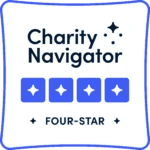For most people, time spent in community service might be a few weekend hours at a local shelter or fundraiser. But for Jessica Munoz, President of Hoʻōla Nā Pua, community service is a way of life.
From communications and marketing to strategic partnerships and networking, Munoz estimates that she spends 50 to 60 hours a week on Hoʻōla Nā Pua related work.
That’s on top of a full time job as a clinical nurse practitioner.
Far from being a super human, Munoz credits her passion in the area of anti-trafficking to a straightforward understanding of the problem.
Jessica MunozShe says, “This cause has wrecked my life—in a good way. I can’t simply go to bed anymore saying, ‘It’s really sad, someone should do something.’ ”
Originally exposed to the problem of human trafficking—particularly domestic minor sex trafficking—in graduate school, Munoz embarked on what has been a five year journey battling this insidious cultural dilemma. Initially, she focused on education and awareness, speaking to anyone who would listen and using her career as a platform for the issue. Given her clinical background, she soon realized the overwhelming need for adequate aftercare treatment for victims here in Hawaii.
Now, Munoz and a team of volunteers are closer than ever to turning that dream for a long-term solution into a reality. Speaking of the group that has made this project possible, she says, “When we first started, we literally started with a tiny meeting in my house with two or three people. I now look at how far we’ve come and it’s absolutely incredible.”
It has not all been easy, however, and Munoz points out that there are still roadblocks to creating lasting change: “If people really believed how horrible the problem is, we would have this home open already. We have a highly sexualized culture and we’ve essentially said that this is okay. At Hoʻōla Nā Pua, we’re trying to fight culture to create social change—that’s hard. Like I’ve said before, people have told me what a great thing it is we’re doing, but the reality is, it’s not just a great thing, it’s a need that our community has.”
In light of this need, Munoz recommends a three-step approach to new volunteers:
- Research – Being informed is crucial to being effective, especially since there is no returning to apathy once one recognizes the atrocity of human trafficking.
- Passion – In an organization staffed by volunteers, each individual has a unique passion and set of gifts; determining what those assets are and how they may be used proves to be an invaluable resource when applied to the cause of social justice.
- Action – Focused action produces incredible results.
In discovering a model for this approach of grassroots engagement, there is no one better than Munoz herself. Ultimately, her dedication to a better future for Hawaii’s victims bloomed from her simple realization: “A driving force for me was the fact that this was a need in my community and we were not addressing it. I had to ask myself, what is my excuse for not doing it?”
To learn more about how you can get involved, visit theTake Action section of our website.


